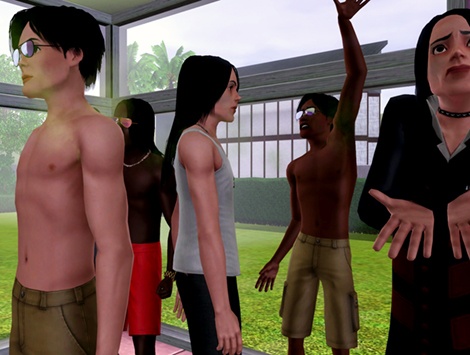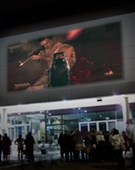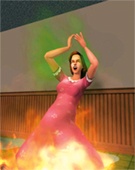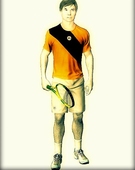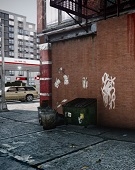"Michael Jackson 4 Ways: Part I-IV" is a machinima film designed to activate an immersive space from which to critically and creatively consider how reality and simulated environments both construct and reconfigure our ideas about the nature of subjectivity and identity. The video work explores these new phenomenons through Sims 3, which is a strategic life simulation video game where players construct and control their Sims in various social activities and form relationships in a manner similar to real life. Sims 3 does not have a defined final goal and its gameplay is open-ended. Michael Jackson was a person who cut across international racial and gender divisions with his music and lyrics, but whose personal life created intense contradictions between his private life and his role as a musician. As the copies of the Michael Jackson Sims play out their animated roles in Paris Hilton's house, the accompanying audio tracks expose the political and moral debates surrounding accusations of paedophilia. "Michael Jackson 4 Ways: Part I-IV" questions the slippery position the viewer inhabits, to make informed, truth based decisions over these personal and moral online statements. Where does one locate one's moral and ethical decisions based on the artists aesthetics?
Full Description
Michael Jackson 4 Ways: Part I-IV (still) 2009 | Digital animation, HDVD file, single channel projection exhibited from hard drive, 16:9, colour, sound, 32.28mins, edition of 5
Work metadata
- Year Created: 2010
- Submitted to ArtBase: Thursday Sep 1st, 2011
- Original Url: http://vimeo.com/27853054
-
Work Credits:
- chrishowlett, primary creator
Take full advantage of the ArtBase by Becoming a Member
Artist Statement
Author: Mark Webb When thinking about how to address the complex political, social and aesthetic implications of Chris Howlett's exhibitions, I had something of a flashback of my own and was drawn to revisit Andrew Feenberg's Critical Theory of Technology (1991). As I recalled, this was one of the first books I had read that specifically engaged capitalist, socialist, economic and cultural viewpoints in order to hypothesise on the role and functions of technology in our near future. In what turned out to be a key text on the subject, Feenberg provided an ambitious and challenging scenario for developing a democratically driven, and politically responsible approach to how advanced technologies like computing might be harnessed for egalitarian purposes. I was curious to see how Feenberg's ambitions from nearly two decades ago might have manifested themselves in Howlett's own explorations into the complicated interface between technology, art, and social and political practices in the early 21st Century. Feenberg believed technology to be the defining issue of modernity. As a major component of contemporary society it was intimately connected to politics, economics, culture, to all aspects of social and personal life. And although he argued that the processes of labour, science and technology were constituted as forms of domination to both nature and human beings, he advocated that these processes could be democratically transformed as part of a broader program of radical social transformation. To achieve this goal of a more democratic and egalitarian society he argued against the prevailing opinions of the time that either slavishly celebrated technology's modernising features, or blamed it for the crisis of Western civilization. Feenberg argued for a rethinking of these simple binaries, to demonstrate how technology can be part of a process of societal democratisation. He believed that there could be no genuinely democratic and progressive political change without the reconstruction of technology, and, vice-versa, no radical change of technology without democratic political change.1. In making his case for change Feenberg also identified how postindustrial technologies had so dramatically redefined fundamental social and economic relations... For further reading please visit at http://www.chrishowlett.com.au/flashbacks.html
Related works
Comments
-
Ross Brodie | 12 years, 7 months agogreat vids, totally capture the second life!
